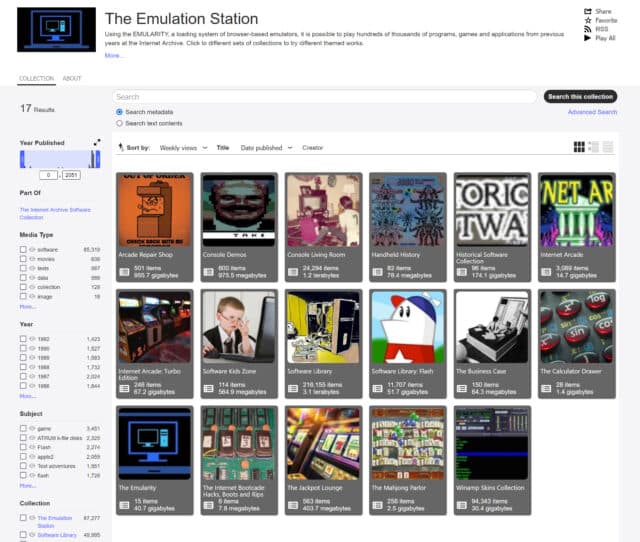

It’s been a decade since the Internet Archive first began offering software that you could run in your browser. Since then, it has added new sections and games to its collection, and there are now over a quarter of a million items available to run for free.
If you haven’t visited The Emulation Station in a while — or indeed, ever — then it’s well worth taking a look. Sections on offer include Console Demos, Console Living Room, Handheld History, Internet Arcade, Software Library, and Calculator Drawer.
There’s also a collection of Winamp Skins, and Flash animations.
Announcing the big milestone, the Internet Archive’s Jason Scott says:
Anyone can come up with an idea, and the idea of taking the then-quite-mature Javascript language, universally inside all major browsers and having it run complicated programs was not new. With the rise of a cross-compiler named Emscripten, the idea of taking rather-complicated programs written in other languages and putting them into Javascript was kind of new.
That all being the case, the idea of taking a by-then 20-year-old super-emulator called MAME, using Emscripten to cross-compile it into Javascript, and then running the resulting code in the browser at Internet Archive to make computers and consoles run, was very new.
It was also, objectively, madness.
Well over a thousand hours of work went into the project from a very wide range of volunteers who poured galactic amounts of time into making the project a reality. Along the way, changes were made to Emscripten, the Firefox, Internet Explorer, and Chrome Browsers, MAME, and the Internet Archive’s codebase to accommodate this dream.
The ‘dream’ was realized in 2013, and more different types of emulated software have been added since.

You can take a look at everything been offered by The Emulation Station at the Internet Archive here.
